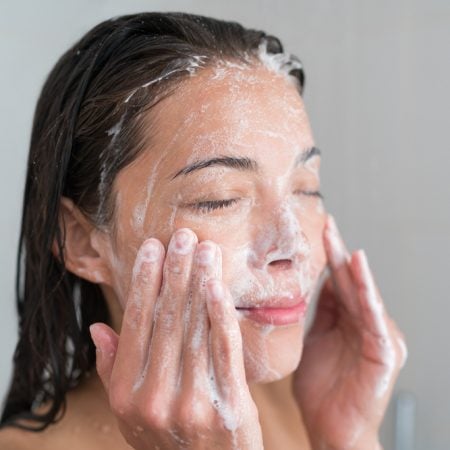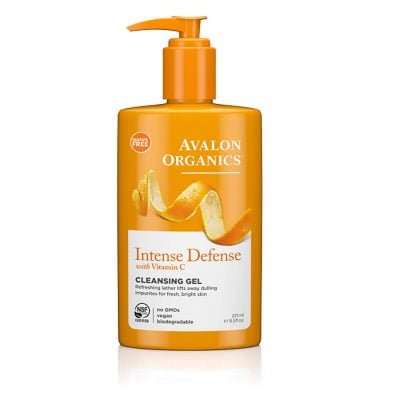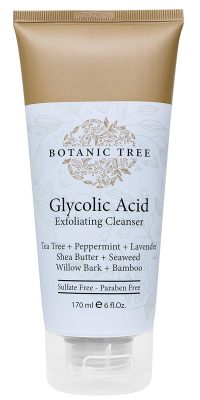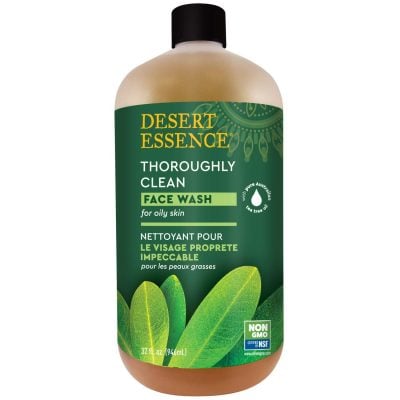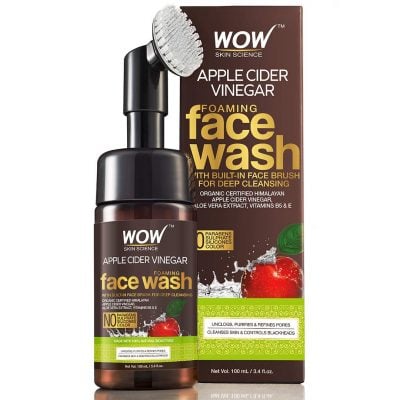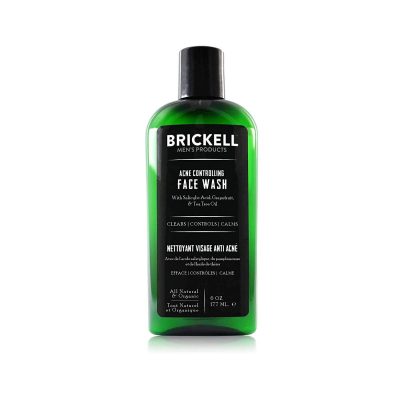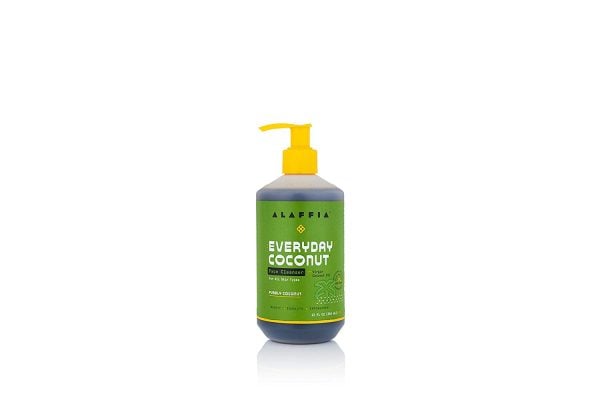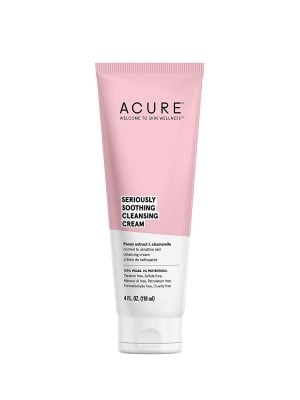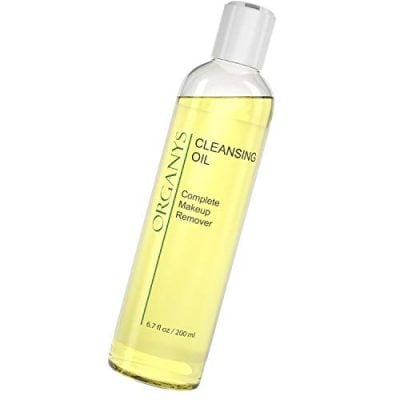Somewhere along the line, the world accepted it was normal for us to lather our faces and bodies with products full of chemical names we can’t pronounce. If you’ve concluded that your skin might prefer something more natural than a cocktail of preservatives and artificial colors, you’re in the right place.
Not everyone subscribes to the idea that organic and natural cosmetic products are necessary — but those people probably never had to worry about sensitive skin or allergic reactions. While there are plenty of people that don’t have any issues with non-organic and non-natural face washes, others find great benefits from switching to more natural products.
- Choosing the Right Organic and Natural Face Wash
- Top 10 Best Natural and Organic Face Washes 2026
- 1. Best Overall Natural Face Wash: Avalon Organics Intense Defense Cleansing Gel
- 2. Best Premium Natural Face Wash: Botanic Tree Glycolic Acid Exfoliating Cleanser
- 3. Best Budget Natural Face Wash: Desert Essence Thoroughly Clean Face Wash
- 4. Best Natural Face Wash for Combination Skin: WOW Apple Cider Vinegar Exfoliating Face Wash
- 5. Best Natural Face Wash for Men: Brickell Men's Acne Controlling Face Wash
- 6. Best Fair Trade Natural Face Wash: Alaffia Everyday Coconut Face Cleanser
- 7. Best Natural Face Wash for Sensitive Skin: ACURE Soothing Cleansing Cream
- 8. Best Makeup-Removing Natural Facial Wash: Organys Cleansing Oil
- 9. Best Hypoallergenic Natural Face Wash: Christina Moss Naturals Face Wash
- 10. InstaNatural Vitamin C Cleanser
- Selecting a Natural Facewash
- FAQs
- Next Step: Great Skin
Choosing the Right Organic and Natural Face Wash
For most people, the greatest objection to choosing organic products is a lack of education. The second objection? A higher price tag. If you’ve learned about these products and decided that keeping your skin healthy and radiant is worth a slightly higher cost, you at least want to be sure that the face wash you choose is living up to its promises. Here’s how to select the right one.
Types of Face Washes
When you hear the word “face wash,” do you think of a thick gel that foams when it comes into contact with water? Or a lighter, creamier product that moisturizes your skin?
Both types of products are sold under the label of a “face wash,” so make sure you know what kind you’re getting before you buy. A light, creamy substance is ideal for those with sensitive skin, while foaming gels are great for anyone with oilier skin.
However, bear in mind that organic face washes are often thinner and produce less foam since they contain fewer foaming detergents.
Certified Organic
If you’re going to pay a higher-than-normal for a product, you want to be sure that it’s genuinely organic and not just “organic.” Beware of companies that choose an organic-sounding brand name but don’t use organic ingredients. This is sometimes referred to as ‘greenwashing.’
Instead, look for certification from an official organization. The main ones are NSF/ANSI 305 Standard for Personal Care Products Containing Organic Ingredients and the USDA National Organic Program. Some products simply say they use “organic extracts” — while this sometimes indicates good quality and at least shows there are some organic ingredients, these products aren’t fully organic.
Are Natural Products Always Organic?
An organic product must be natural, but a natural product isn’t always organic. For instance, a “natural” face wash might contain ingredients like lavender and coconut oil grown using GMOs or pesticides. This would mean the product is not organic.
If your priority is finding a product that’s as natural as possible, look for products that don’t contain parabens, synthetic colors, or fragrances, phthalates, sulfates, and formaldehyde.
As for whether it’s necessary for you to buy organic, that’s a whole other question.
Cruelty-Free and Vegan
As a general rule, natural and organic cosmetic products tend to be vegan and cruelty-free — but this isn’t always the case. To be sure, look for the “leaping bunny” symbol, which means a product is certified by the Coalition for Consumer Information on Cosmetics (CCIC) to be cruelty-free, although not necessarily vegan.
Some vegans also prefer to avoid petroleum-based products since it’s harmful for the environment (and for our bodies).
Skin Type
Is your skin oily, dry, or combination? How about sensitive? Make sure you know your skin type before you buy a face wash.
If your skin is oily or acne-prone, you might want to choose a product with special ingredients to tackle pimples, like salicylic acid or glycolic acid. The Botanic Tree face wash is a great example. If you have dry skin, choose something more moisturizing that doesn’t strip your natural oils so much.
Those with sensitive skin should avoid harsh and synthetic ingredients, so natural and organic options can be particularly helpful. The ACURE soothing facial wash could be a good choice.
Allergic Reactions
One of the top reasons people turn to organic or natural products is to prevent allergic reactions and contact-based dermatitis or irritation.
Irritants in cosmetic products are a relatively complex topic, but the most common allergens include acids, synthetic fragrances, sulfates, and even essential oils — although they’re natural, they’re also very strong and can irritate some people.
If allergens are a problem for you or if you have sensitive skin, look out for face washes labeled as “non-comedogenic” or “hypoallergenic,” like this Christina Moss face wash that eliminate the most troublesome ingredients.
Top 10 Best Natural and Organic Face Washes 2026
1. Best Overall Natural Face Wash: Avalon Organics Intense Defense Cleansing Gel
Editor’s Rating:
Quick Facts:
- Size: 8.5 Fl Oz
- Type: Foaming gel
- Cruelty-free: Yes
- Certified organic: Yes
- Ideal skin type: Oily/normal
- Free from: Parabens, harmful sulfates, GMOs, preservatives, synthetic colors, and phthalates.
- Fragrance: Orange (but there are no synthetic fragrances).
As an all-organic brand, Avalon cares about creating gentle, pure formulas that won’t expose your skin to harsh chemicals. An extra bonus is the promise to tackle aging (for you) and environmental damage (for the world). All this comes at a relatively affordable cost for a premium product.
It’s best for normal/combination or oily skin — those with sensitive or dry skin might find it too drying thanks to the strength of the ingredients.
Ingredient Quality
The ingredients list couldn’t be much cleaner — it’s free of just about anything harmful and uses a range of plant-based ingredients instead.
Marketed as being an “Intense Defense” product, the combination of Vitamin C, white tea, and lemon bioflavonoids is a formidable one. Vitamin C helps to even your skin tone and keep the skin firm, and citrus bioflavonoids support Vitamin C in the body while brightening the skin. Finally, white tea fights off signs of aging, like sagginess and wrinkles.
Overall, the mix of ingredients helps to repair the skin from signs of sun damage like dark spots while keeping it looking youthful.
However, there are a few ingredients to be careful of – it contains the cheap preservatives sodium benzoate and benzyl alcohol. These aren’t the worst things in the world, but some people like to steer clear of alcohol as an ingredient.
Pros
- Certified organic
- Free of most harmful chemicals
- Fights aging and sun damage
Cons
- Contains benzyl alcohol and sodium benzoate
Editor’s Rating:
Quick Facts:
- Size: 6 Fl Oz
- Type: Exfoliating, non-foaming cleanser.
- Cruelty-free: Yes
- Certified organic: No, but it’s made with organic extracts.
- Ideal skin type: Oily/acne-prone
- Free from: Parabens and sulfates.
- Fragrance: Tea tree.
If you want something to kick your skin into shape after struggling with acne or signs of aging, Botanic Tree’s face wash could fit the bill. It’s an exfoliant that will penetrate and rejuvenate your skin while helping remove dead skin.
The only downside is that Botanic Tree uses organic extracts rather than being certified as organic, which is surprising for the high price tag. But if your priority is natural ingredients rather than avoiding GMOs, this is less of an issue. It’s also made in the USA.
Ingredient Quality
Although there’s a strong link between ingredient quality and organic ingredients, the distinction is not always so simple. A quick look at this product’s ingredients list points to excellent quality.
As an exfoliant, the face wash contains alpha hydroxy acid (AHA), which helps remove dead skin cells. Don’t worry, it’s natural — AHA is a naturally-occurring acid that comes from fruit.
The star ingredient is glycolic acid, which is well known for tackling acne. This face wash contains a 10% concentration, making it effective at tackling severe conditions like cystic acne. A second item helpful for treating acne is salicylic acid.
Further ingredients are bamboo, shea butter, tea tree, will bark, seaweed, peppermint, and lavender. These are the organic extracts and help with discoloration, acne scars, sun spots, and other skin issues.
Pros
- Contains 10% glycolic acid to tackle cystic acne
- Fights aging
- Cruelty-free
Cons
- Not certified organic
3. Best Budget Natural Face Wash: Desert Essence Thoroughly Clean Face Wash
Editor’s Rating:
Quick Facts:
- Size: 32 Fl Oz
- Type: Thin, lightly foaming liquid.
- Cruelty-free: Yes
- Certified organic: No (only the tea tree is certified as organic)
- Ideal skin type: Oily
- Free from: Sulfates, parabens, GMOs, phthalates, petroleum compounds, PEGs, PPGs, MEA, DEA, TEA, gluten, and phthalates.
- Fragrance: No synthetic fragrances.
Although organic products get a reputation for being overly pricey, this face wash shows that this isn’t always the case. It might not quite have full organic certification from the NSF or USDA, but the NSF certifies it as being GMO-free. Also, it’s made in the USA.
Unlike most face washes, the Desert Essence face wash doesn’t foam. This is a good thing for those who prioritize natural ingredients, because foaming is an indicator of artificial thickeners and detergents. However, those who like the foaming cleansers could be disappointed at the unconventional texture.
Ingredient Quality
Desert Essence focuses heavily on the pure Australian tea tree oil, which makes this face wash ideal for those with oily skin.
It also features three other essential oils: lavender, chamomile, and calendula. These are antioxidants to rejuvenate and nourish your skin.
Another major ingredient is castile soap, known for penetrating pores and aiding oily skin without being too harsh on sensitive skin. It’s a lifesaver for anyone struggling to manage both oily and sensitive skin, although it can be drying.
It’s free of animal-derived ingredients and almost all problematic ingredients, as outlined in the impressive “free-from” list above.
Pros
- Price effective
- Very natural ingredients
- Made in the USA
Cons
- Not fully organic
- Thin and watery
4. Best Natural Face Wash for Combination Skin: WOW Apple Cider Vinegar Exfoliating Face Wash
Editor’s Rating:
Quick Facts:
- Size: 3.4 Fl Oz
- Type: Foaming gel
- Cruelty-free: Yes
- Certified organic: Yes
- Ideal skin type: All
- Free from: Parabens, sulfates, silicones, and artificial colors.
- Fragrance: Aloe vera
WOW is an India-based brand that focuses on bioactive ingredients with no animal testing and has organic certification. It’s a great start already.
But having a great skincare routine isn’t just about using the right face wash – you also need to apply it to your face properly. WOW includes a silicone brush built into the bottle of this face wash, which is great for massaging your skin, boosting circulation, and removing dead skin cells.
Ingredient Quality
Apple cider vinegar has a wealth of health benefits, but as an extremely acidic ingredient, it does an especially good job of balancing the skin’s pH and cleansing pores. Be careful as it can dry out skin for some.
Those with sensitive or dry skin will be pleased to know that there are soothing, moisturizing ingredients too. The aloe vera does a good job of moisturizing and fighting dryness, and vitamins B5 and E also promote hydration.
Finally, tocopheryl acetate is an antioxidant that protects skin of all types from damage.
However, like many other face washes, it has the preservative sodium benzoate.
Pros
- Suitable for all skin types
- Great, natural ingredients
- Comes with a helpful brush
Cons
- Contains sodium benzoate
- Can dry out skin in some cases
5. Best Natural Face Wash for Men: Brickell Men's Acne Controlling Face Wash
Editor’s Rating:
Quick Facts:
- Size: 7.5 Fl Oz
- Type: Lightly foaming
- Cruelty-free: Unclear
- Certified organic: Yes
- Ideal skin type: Acne-prone
- Free from: Sulfates, parabens, glycols, PEGs, synthetic fragrances, gluten, phthalates, and petrochemicals.
- Fragrance: Tea tree and grapefruit.
Brickell is a new skincare brand that has attracted attention from customers and prestigious magazines alike. With good reason — this is one of the few certified organic face washes targeted for men on the market, although men can really use any face wash.
Although on the pricey side, this facial wash is a fabulous and organic option for men who struggle with acne.
However, the cruelty-free status is unclear. Brickell itself claims its products are cruelty-free, but this face wash doesn’t have an official Leaping Bunny certification. Those sensitive to animal testing might want to steer clear just in case.
Ingredient Quality
It contains a concentration of 2% salicylic acid to prevent acne. However, this is a lot less than the stronger 10% concentration of Botanic Tree. If you suffer from severe acne, you might need something stronger
Further staples are the classic anti-acne ingredient tea tree oil and the lesser-known tool grapefruit oil — both are natural antibacterials that preserve the product and clean skin. The mix of these three pimple fighters is ideal for clearing your skin, tackling impurities, and maintaining a long shelf life.
Everything is certified organic, and the solution is free of most nasty items, from gluten to petrochemicals. Overall, the ingredients list leaves little to complain about, but it contains the cheap preservative sodium benzoate, which could be disappointing for some.
Pros
- Great for fighting acne
- Free of most troublesome ingredients
- Certified organic
Cons
- Expensive
- Cruelty-free status unclear
6. Best Fair Trade Natural Face Wash: Alaffia Everyday Coconut Face Cleanser
Editor’s Rating:
Quick Facts:
- Size: 12 Fl Oz
- Type: Foaming
- Cruelty-free: Yes
- Certified organic: No
- Ideal skin type: All skin types
- Free from: Parabens, sulfates, gluten, dye.
- Fragrance: Coconut and neem
Every time you buy from Alaffia, they donate money to good causes such as maternal care, school supplies, and reforestation. If you need something to justify splurging out on an organic, natural face wash, you just found it.
Ingredient Quality
With such a small ingredients list, it’s easy to scan through everything inside this face wash. We can confirm that there’s nothing harmful in sight.
The main ingredients are virgin coconut oil, papaya leaf, and neem. Coconut oil is antibacterial and nourishes the skin, while neem is an antioxidant great for protecting the skin from the sun and even the aging process. Papaya leaf also protects against aging and pimples.
The only downside of the face wash is that it isn’t certified organic, although it does pull off a fair trade certification.
Pros
- Fair trade
- Very natural
- Minimal ingredients
Cons
- Not certified organic
7. Best Natural Face Wash for Sensitive Skin: ACURE Soothing Cleansing Cream
Editor’s Rating:
Quick Facts:
- Size: 4 Fl Oz
- Type: Creamy
- Cruelty-free: Yes
- Certified organic: Yes
- Ideal skin type: Sensitive and dry
- Free from: Sulfates, mineral oil, parabens, and formaldehyde.
- Fragrance: Citrus
Unlike lots of the foaming gels on the market, Acure has produced a face wash designed to moisturize. This is far gentler than many foaming products, which are designed to strip your skin.
ACURE also has lines targeted at different skin types (e.g. aging and acne-prone). Check them out if you have more sensitive skin.
Ingredient Quality
Coconut oil is a major ingredient, which contributes to nourishing the skin. There’s also a blend of argan oil (another moisturizer), peony extract (an anti-inflammatory to soothe the skin), and sunflower amino acids (protect against inflammation and damage). Naturally, they’re all organic.
Although there are no standout “red-flag” items, there’s a very long list of ingredients, which doesn’t exactly scream simple. Also, the main ingredient is water. Although water isn’t harmful, it’s a filler ingredient that will evaporate on your skin, and can increase dryness. This is disappointing for a relatively expensive facial wash.
Pros
- Certified cruelty-free and vegan
- Ingredients are certified organic
- Moisturizing
Cons
- Long ingredients list
- The main ingredient is water
8. Best Makeup-Removing Natural Facial Wash: Organys Cleansing Oil
Editor’s Rating:
Quick Facts:
- Size: 6.7 Fl Oz
- Type: Cleansing oil
- Cruelty-free: Yes
- Certified organic: No
- Ideal skin type: All skin types
- Free from: Parabens and sulfates
- Fragrance: Light
Another rare gem that’s suitable for skin of all kinds, the Organys face wash does a great job of managing your natural oils. It won’t strip your skin, keeps your face hydrated, and also gets into your pores to tackle acne.
Unlike the other facial washes on this list, it’s a cleansing oil rather than a cream or gel, since this is more effective at getting rid of makeup. This is also good news for those with sensitive skin, who may struggle with soapy, lathering formulations.
The application process is very similar to most on the list — just massage it onto your face and wash it off.
Ingredient Quality
The ingredients list here is extremely minimal and couldn’t be much more natural.
The base ingredient is olive oil. It’s not just a cooking oil — it also hydrates the skin and even helps with acne. There’s also Vitamin E, an antioxidant that fights against damage to the skin from external stressors.
Other than this, there are only two other ingredients: PEG-20 Glyceryl Triisostearate, caprylic triglyceride, and geranium oil. Some believe PEGs could be harmful for sensitive skin, but it hasn’t been confirmed.
Despite the slightly misleading name, Organys isn’t actually organic. Is that a big deal when the ingredients are all-natural? You decide.
Pros
- Suitable for all skin types
- Removes makeup
